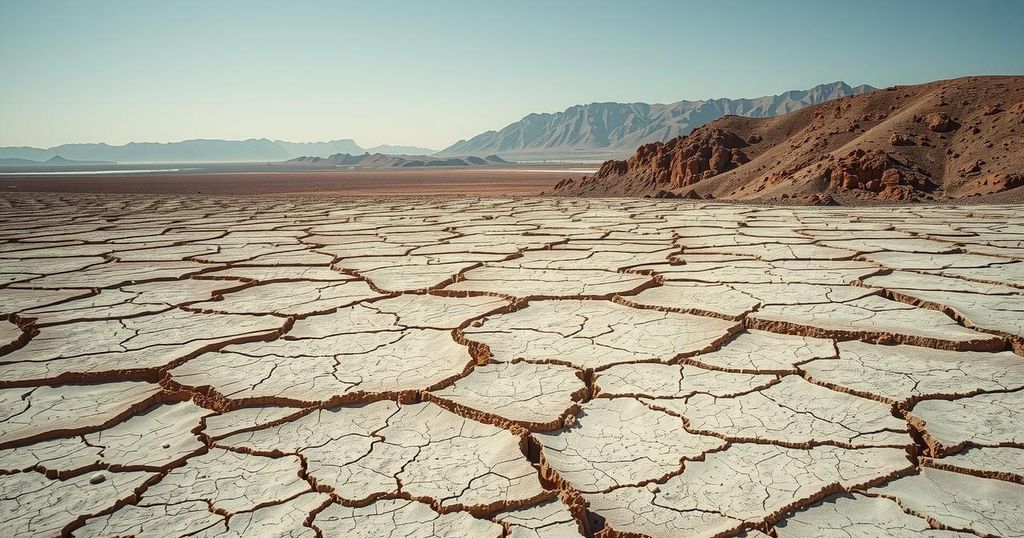Climate change
Technology
AMAZON, ANDREW MEDICHINI, AP, ASIA, CLIMATE CHANGE, DARKO VOJINOVIC, ED, EUROPE, FLOODING, FOOD SECURITY, IBRAHIM THIAW, ITALY, IVAN VALENCIA, NATURAL DISASTERS, RIYADH, SAUDI ARABIA, SERBIA, SICILY, U. N, UNITED NATIONS, UNITED NATIONS CONVENTION TO COMBAT DESERTIFICATION
Leila Ramsay
0 Comments
Global Response to Drying Lands: U.N. Summit Addresses Drought Challenges
Earth’s lands are increasingly drying out, affecting ecosystems and food security. During the U.N. summit in Riyadh, nations discussed responses to this crisis, which includes strategies for drought mitigation and land degradation. A report indicated that over three-quarters of the Earth’s land has become drier since 1970, requiring urgent action, especially from developed nations, to assist vulnerable regions in adapting to the changing climate.
Earth’s landscapes are currently experiencing significant desiccation, threatening ecosystems and agricultural productivity. This issue is being addressed at the ongoing United Nations summit in Riyadh, Saudi Arabia, which focuses on combating desertification. A recent U.N. report revealed that over 75% of the planet’s land has become drier from 1970 to 2020, primarily due to climate change, deforestation, and excessive water usage. As these conditions escalate, it poses risks to nearly five billion people globally by the century’s end, particularly endangering agriculture and food security.
During the summit, representatives from various nations are engaging in vital discussions on strategies to combat the escalating crisis of droughts and land degradation. Key points of contention revolve around the responsibility of wealthy nations to provide financial assistance for drought mitigation efforts worldwide. Additionally, there is a focus on development initiatives that will enable countries to improve their monitoring systems and create infrastructure that enhances water access during prolonged dry periods.
Addressing the issue requires international collaboration and sustained efforts to adapt to the changing climate. Advocates suggest implementing innovative agricultural practices that conserve water and enhance soil health, as well as investing in reforestation initiatives to restore natural ecosystems. Ultimately, proactive measures are crucial to safeguard both human and ecological communities against the adverse effects of prolonged droughts and land desertification.
The ongoing phenomenon of land drying out is a pressing global issue, driven largely by human-induced climate change, deforestation, and unsustainable water practices. Its implications extend beyond the immediate effects on agriculture, posing risks for biodiversity and water availability, which in turn threaten food security and economic stability for millions. The U.N.’s recent report highlights the severity of the situation, emphasizing the need for international cooperation and financial investment in sustainable practices to mitigate these challenges and adapt to new environmental realities.
In conclusion, the alarming trend of land desiccation necessitates urgent global action and collaboration among nations to address the pressing challenges of drought and desertification. With dire projections indicating that billions could be affected in the future, it is imperative that countries adopt comprehensive strategies to enhance water conservation, improve land use practices, and invest in sustainable development initiatives. The outcomes of the ongoing U.N. summit in Riyadh will be critical in shaping the global response to this pressing environmental crisis.
Original Source: apnews.com




Post Comment